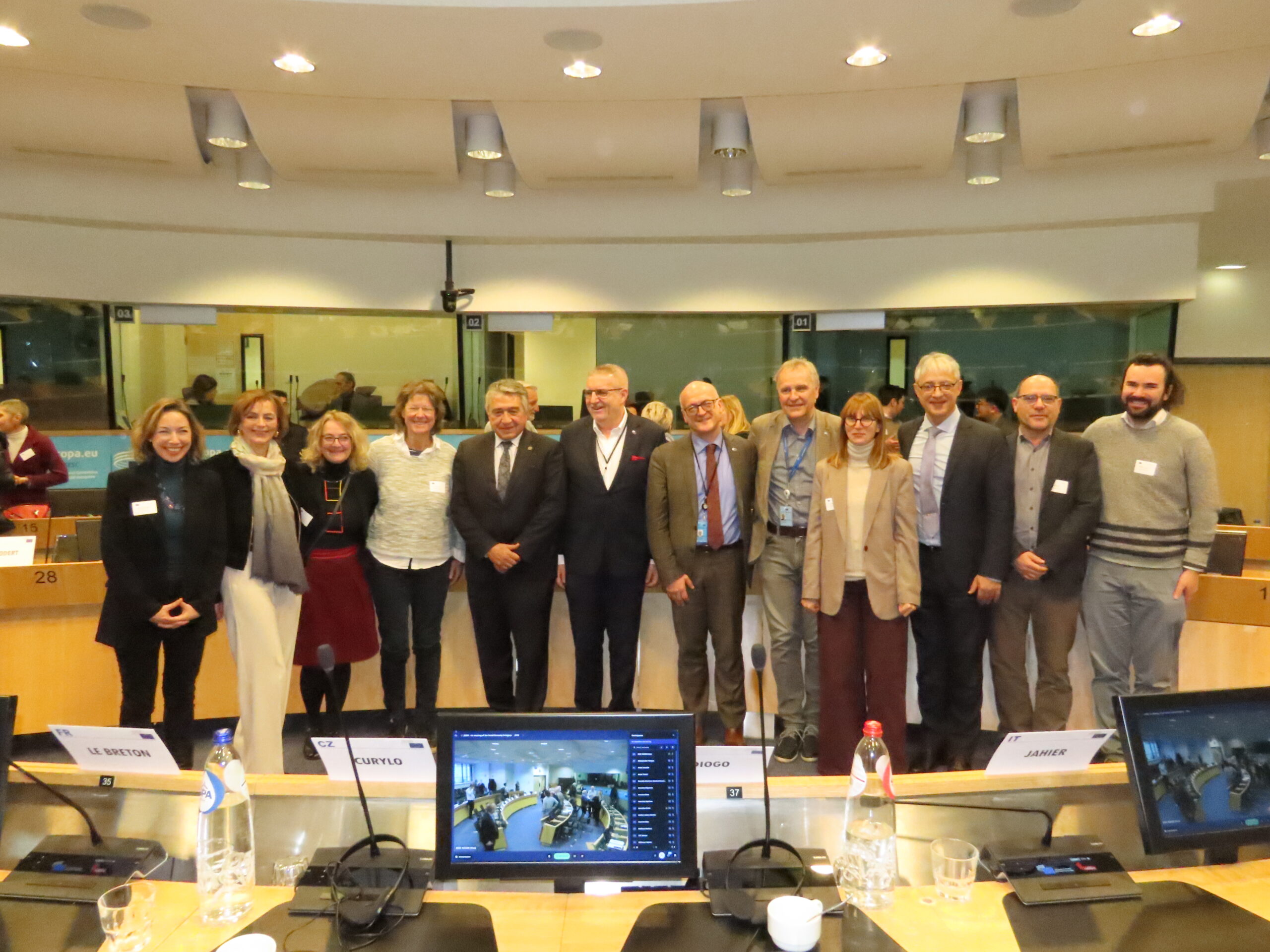On February 7 in Brussels, the European Economic and Social Committee (EESC) hosted the presentation of the CIRIEC and Euricse Statistical Report on the Social Economy in the EU, an initiative supported by the European Commission within the framework of the Social Economy Action Plan.
The study, published in English under the title “Benchmarking the socio-economic performance of the EU Social Economy: Improving the socio-economic knowledge of the proximity and social economy ecosystem”, was jointly conducted by EURICSE and CIRIEC, following a public tender launched by the European Innovation Council and SME Executive Agency (EISMEA).
The presentation event in Brussels began with welcoming remarks from Giuseppe Guerini, President of CECOP-CICOPA Europe, the European Confederation of Industrial and Service Cooperatives, and Justyna Kalina Ochędzan, President of the Working Community of Social Organizations WRZOS. The European Commission was represented by Bonifacio Porras García, Head of the Proximity, Social Economy, and Creative Industries Unit (DG GROW).
Following this, the main findings of the report were presented by Chiara Carini and Giulia Gallera from EURICSE, as well as Rafael Chaves Ávila from CIRIEC-Spain. The Euricse researchers focused on the quantitative results of the report, which estimates that 11.5 million people are employed in the EU’s social economy, across 4.3 million enterprises and entities. The document states that 97.7% of these enterprises belong to one of the four traditional families of the social economy (cooperatives, mutual societies, associations, and foundations). In contrast, only 246,000 are classified as social enterprises.
Rafael Chaves, on the other hand, highlighted the key qualitative findings and recommendations. The report reveals the need to improve the definition and delimitation of the social economy and social enterprises, addressing the ambiguity regarding which entities can or cannot be considered part of the social economy field. Mechanisms to resolve these limitations are suggested in this regard.
Likewise, the report highlights significant disparities between countries in the development of statistics on the social economy, which limits data scope and comparability. At an institutional level, there is often a lack of regulations governing the statistical field of the Social and Solidarity Economy (SSE) and a lack of incentives for governments and statistical institutes to develop these statistics.
For this reason, one of the key proposals in the report is the creation of a mixed international working group, including national statistical institutes, academic experts, and umbrella organizations from the sector. This group would contribute to standardizing the scope of the social economy, the variables, and data collection mechanisms, developing a harmonized statistical framework that allows for comparability at the European level.
Another recommendation is to update the European System of National and Regional Accounts (ESA 2010) by including social economy entities that are not yet recognized within it. A third recommendation suggests conducting a special Eurobarometer on the social economy to gather information on how EU citizens participate (distinguishing between members and volunteers), their knowledge of the social economy, and their perception of its contribution to society.
After this presentation, a debate took place on the implications of the report, with the participation of Maravillas Abadía Jover, Member of the European Parliament (EPP, Spain); Irene Tinagli, also a Member of the European Parliament (S&D, Italy); Sarah de Heusch, Director of Social Economy Europe; Agnès Mathis, Director of Cooperatives Europe, and Hanna Surmatz, Policy Director at Philea.
Several members of Category III of the European Economic and Social Committee also took the floor.
All participants praised the work carried out and emphasized the need to continue building social economy statistics to better highlight this distinct sector of the economy, improve knowledge about it, and understand its needs for the design of public policies that foster its development for the benefit of society as a whole.







